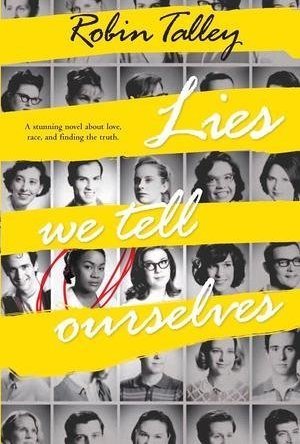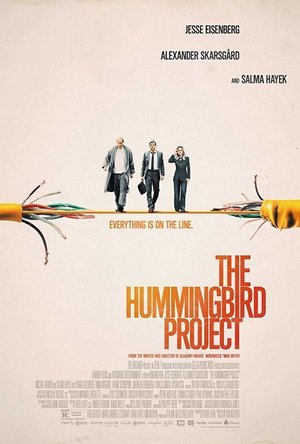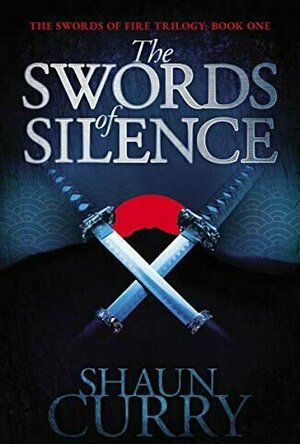Now I must admit that I sometimes find it very difficult to give a star rating to a self-help book as actually reading the book is only part of the therapy that it provides. In order to give a fully accurate rating the book would have to be read, the constructive ideas written within the pages followed and carried out wholeheartedly and a realistic amount of time left to pass for recovery. As I have only finished reading this book today I have not had time to really go through the processes that are outlined in this book, therefore, I do not know how much this book will actually have an impact on my life BUT I am willing to work my way through the suggestions.
I borrowed this book from the library (I find some self-help books to be over priced and there are just so many out there that you often don't know exactly what you're buying) so I am not able to refer back to this copy time and time again throughout recovery like this book suggests you do (unless I decide to purchase a copy) and so quite a few of the processes will have to be carried out using memory, which I know isn't often advised.
The reason for my high rating is because I found this book to be completely different to any other self help book that I have read in the past. Often these books outline the same sort of processes so you keep being fed the same sort of information but this book seems to have a more relaxed approach to dealing with stress, anxiety and depression...and in some ways a more realistic approach. It teaches you the methods of 'floating' not 'facing', 'accepting' not 'fighting' and 'comfort' not 'conflict'.
I am definitely not a stranger to anxiety and depression and so for a long time I have been actively searching for ways in which these 'illnesses' can be 'cured' or made less intense. This book has definitely helped me in the sense that it has given me a completely different perspective compared to what I had before reading this book. Stress and depression can cause you to be a lot less open minded than you perhaps used to be and being accepting of new ideas and view points may seem very daunting, however, when ideas are presented in this book Dr Weekes gives examples about how the sufferer may be feeling once presented with an idea (personally I found her to be pretty spot on) and so you are given a sense of relief that someone out there knows what you are going through and that she has helped many people in similar situations.
The book also contains numerous 'Case Studies', where Dr Weekes gives examples of some of her clients, their problems, their emotions, their coping strategies and the feedback that she provides for them. The 'life problems' discussed are very broad and so you may find that one might be similar to your current situation, a situation you have been in or perhaps even a situation that you are frightened you might end up in in the near or distant future.
My retraction of 1/2 a star wasn't because this book has any negative aspects but simply because I am yet to fully explore it's full potential and to put it into practice, as mentioned earlier on in my review.
I find that just knowing that someone is there 'talking to you' and 'guiding' you in the right direction is comforting and kind of relaxing in a way...a helping hand, to turn that frown upside down.
Hazel (1853 KP) rated Lies We Tell Ourselves in Books
Dec 17, 2018
<i>Lies We Tell Ourselves</i> by Robin Talley is a realistic tale about the beginning of the integration of coloured people into white schools in late 1950s America. In Virginia it is 1959 and ten Negros are beginning their first day at Jefferson Highschool. The experience is narrated from one of the ten, Sarah’s, perspective. In other parts of the novel the voice changes to that of Linda, a particularly nasty white girl, who is one of countless students opposed to integration.
Although many young people will have been taught about the black civil right movement it is still shocking to read about the horrible things they had to endure. By writing in the first person, Talley encourages the reader to try to understand how they would feel in a similar situation. Sarah and her friends instantly become the victims of verbal and physical abuse that members of authority turn a blind eye to.
To Sarah, Linda is a nasty spoilt bully who, although does not join in with the taunting and abuse, is as bad as the rest of them. Through reading Linda’s account it becomes clear that her behaviour has a lot to do with her home life, in particularly with her father’s attitude towards her. After being forced to partner Sarah for a French project Linda begins to question why there is so much emphasis on skin colour, however not wanting to be shunned by her own friends she keeps these thoughts to herself.
Sarah is also struggling to come to terms with her sexual preference for girls. It has been drilled into her that these thoughts are a sin. She hides her true feelings from everyone and constantly berates herself mentally for being “unnatural”. But it turns out she may not be the only one with these thoughts.
The lies referred to in the title are not the blatant or harmful lies but rather the lies the characters believe or even want to believe. Each chapter begins with a lie that reflects what is occurring in the novel at that time; for example “There’s no need to be afraid” and “I don’t care what they think of me.” This is an interesting way of telling the story as it emphasizes Sarah’s determination to keep going despite what she is subjected to. It also reveals the mental struggles she faces. On the other hand the lies disclose Linda’s conflicting feelings towards the South’s current situation and segregation laws.
Although not a religious novel, each part begins with the title of a Christian hymn. It was the norm for everyone to go to church and, despite the separate churches, was something black and white people did. Sarah and Linda have faith in God yet they both use the bible’s teachings for opposing arguments. The religious aspect also highlights Sarah’s self-hatred and belief that she has fallen into sin.
Unfortunately in today’s world there are still issues with racism and homophobia however after reading <i>Lies We Tell Ourselves</i> it is evident that these situations have vastly improved, at least in the Western world, since the 1950s. Without children such as Sarah going through these horrible experiences nothing would have changed. There would still be separate schools, slavery and inaccurate opinions about race inequality. America has a lot to thank these brave students who were the first to create mixed race schools.
Overall this is a brilliant book. Well written and realistic, it really draws the reader in to the characters’ stories. Although <i>Lies We Tell Ourselves</i> is a work of fiction, it is historically accurate and can teach a lot about America’s history to young adults today.
Gareth von Kallenbach (980 KP) rated The Hummingbird Project (2018) in Movies
Jul 2, 2019
The film does a fairly good job representing the intense difficulty of such a project: it’s something like one thousand miles of straight line to run one fiber optic connection without obstruction. Most people would not think about what goes into making that into reality, which is the draw for most of the film’s conflict. I do however recognize that centering the plot on a large scale construction job of an internet cable doesn’t exactly scream excitement for most people; and this is especially true when the end goal is to shave off one millisecond from their current transaction times. Yet, this arguably ironic dynamic actually ended up being somewhat of a draw for me. Halfway through the film the question arises, “All this for just a millisecond of increased speed?” That’s the point though, and I wish the film would have delved deeper into these kinds of themes. This represents my chief criticism: all of the elements are here for a truly stellar drama but everything is explored at only a shallow or moderate depth. The characters have decent arcs, thrown some difficult challenges and curveballs to overcome, but Jesse Eisenberg’s character only briefly touches on the back-story that truly drives him, and while Alexander Skarsgård‘s character is more fully fleshed out his arc is essentially basic. I do enjoy the role reversal as one would usually expect to see Jesse Eisenberg playing the socially awkward genius programmer and Alexander Skarsgård to play the ambitious go-getter who runs the project, but they take opposite roles to great effect. The actors all do great here for the most part, including the excellent Michael Mando in a supporting role. My only complaint here is the acting dips a bit into melodrama later in the film, but this is mostly attributed to subplots that edge into the unbelievable.
Ironically Hummingbird Project works best at representing its core premise of what most would consider a mundane construction project. The actors do well, and I especially enjoy Alexander Skarsgård‘s portrayal of the lonely genius, but their underlying drama and back-stories are a bit of a mixed bag. Some of it works decently well while other elements do not – particularly late in the film. Sadly the themes at play are a bit too obvious and underexplored, but it is an appreciated attempt to represent a seldom explored aspect of contemporary industry.
Ivana A. | Diary of Difference (1171 KP) rated The Swords of Silence in Books
Feb 3, 2020
#1 <a href="https://www.goodreads.com/review/show/2886479579">The Swords of Silence</a> - ★★★
<img src="https://diaryofdifference.com/wp-content/uploads/2019/09/Book-Review-Banner-20.png"/>;
I was born and raised in a country where religion is sacred. I was surrounded with Christianity all my life. However, while I have learned lessons of love, respect and hope, I am not a believer. I do believe that we need to be kind to each other, respect each other and hope for a better tomorrow, but I don't believe there is a God out there who decides our faith. My review is based on how I felt while reading and I believe everyone is entitled to their own opinion and should be respected for that.
The Swords of Silence features father Joaquim, who moves to Japan in the 1620's, to share the religion of Christ. However, the brutal regime in Japan forbids any other religion than Buddhism. The Shogun is determined there is no more Christianity in his country. Throughout the book, we follow Joaquim's journey, where he manages to get captured and escapes several times, with the help of God.
<b><i>This book perfectly captures the regime in Japan during this time.</i></b>
The true terror and the brutal punishments if you ever dare make a mistake. The world of no mercy. But this book is also a product of divine inspiration and has great elements some of us consider fantasy.
<b>Many of the scenes in The Swords of Silence that featured escaping were unrealistic and resembled the Bible stories.</b> We had walking on water, moving of mountains and a big storm in the sea that only affects the enemy ship, even though they are only metres away from father Joaquim's ship.
There is one scene though, that I was absolutely in awe with, and that was the scene with the duels. As a person who trained karate all my life and is very familiar with the rules of a duel, honour, respect and combat in martial arts - this scene was perfectly set and accurate. It brought all the emotions and it was brutally realistic. And it is because of this scene that I will give this book three stars.
The Swords of Silence is a great book, and I love the fact that the author captured moments in history that were true and brutal, and not many people in the world know about. A story that will make people aware of what was happening in the past. Even though I am not a believer in God, I stand by that people shouldn't be mistreated, bullied, or in this case - brutally murdered for what they believe in. Everyone has the right to believe in anything they believe in.
If this book was more realistic with the events and scenes, I would have given it five stars for the message it shares with the world.
<b><i>True fact: Around 1% of the population in Japan claims Christian belief or affiliation. Most large Christian denominations are repressed in Japan today.</i></b>
Thank you to LoveReading UK, the publisher Harper Collins UK and the author, Shaun Curry, for sending me a copy of this book in exchange for an honest review.
<a href="https://diaryofdifference.com/">Blog</a>; | <a href="https://www.facebook.com/diaryofdifference/">Facebook</a>; | <a href="https://twitter.com/DiaryDifference">Twitter</a>; | <a href="https://www.instagram.com/diaryofdifference/">Instagram</a>; | <a href="https://www.pinterest.co.uk/diaryofdifference/pins/">Pinterest</a>;

Fighting Fantasy: The Forest of Doom
Games and Book
App
Nostalgia overload! Fighting Fantasy returns with Ian Livingstone's classic, The Forest of Doom. ...

Accountant Universal Calculator
Finance and Business
App
Accountant Universal Calculator, for iPad and iPhone, is the perfect calculator for general everyday...

TapGlance Interior Design
Lifestyle and Productivity
App
TapGlance is a powerful and intuitive interior design app. Within minutes and without any prior...

GarageBand
Music and Lifestyle
App
GarageBand turns your iPad, iPhone, and iPod touch into a collection of Touch Instruments and a...

iTablaPro - Tabla Tanpura Player
Music and Lifestyle
App
Come sit down for a session with our Tabla Pro. Experience virtuoso, realistic tabla playing, and...

AFL LIVE 2
Games and Sports
App
Lead your team to Premiership glory in the most realistic AFL experience on iPhone and iPad. Play...



